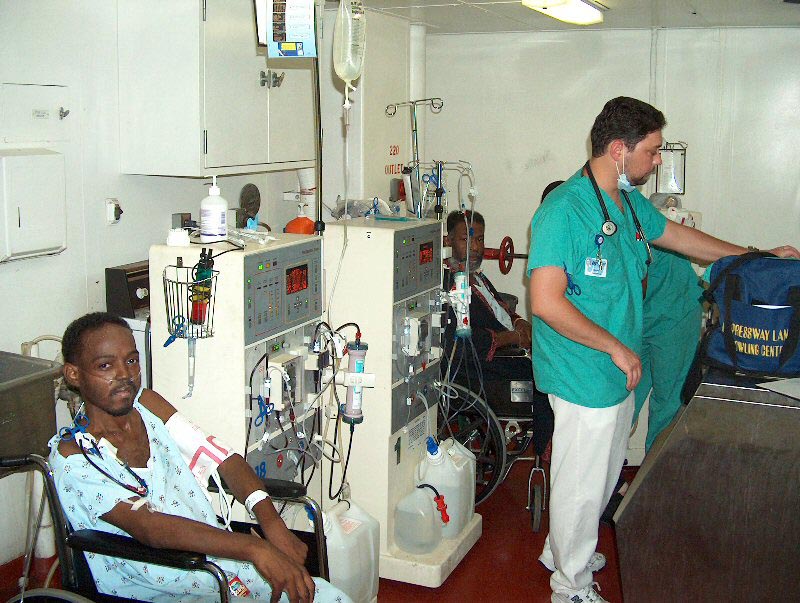Overnight Dialysis More Affective Than Daytime Dialysis
 Recent research showed that overnight dialysis is much better than the traditional daytime dialysis. Researchers found that there was 80 percent reduction in death rate in the group receiving overnight dialysis.
Recent research showed that overnight dialysis is much better than the traditional daytime dialysis. Researchers found that there was 80 percent reduction in death rate in the group receiving overnight dialysis.
Researchers led by Dr. Ercan Ok, the department of nephrology at Ege University, in Izmir, Turkey reached this conclusion after studying data collected from 224 Turkish dialysis patients -- average age, 45. These patients were given dialysis overnight for eight hours three times a week for a year. After an adjustment period of around a month all the patients slept through the night without problem. Their results were compared with the results of patients given the normal course of four-hour dialysis three days a week.
Comparison of data showed that giving the treatment overnight reduced patient's need for hospital treatment and overall death rate. Overnight dialysis patients had reduced blood pressure, put on weight and were able to return to work more easily. They also needed fewer additional drugs, such as medication to control high blood pressure. 72 percent decline in the use of drugs to lower phosphate absorption.
Dr Ercan Ok, from Ege University in Izmir, Turkey, said: "We expect that these data would be convincing to the whole of society - including physicians, patients, health authorities, and social security institutions - for the necessity of longer hemodialysis in order to improve high mortality (rates)."
Dr. Robert Provenzano, chairman of the department of nephrology at St. John Hospital and Medical Center in Detroit, said: "It’s not a randomized, controlled study, which might mean that the findings may be almost too good to believe. Since in developing countries, such as Turkey, China, India, patients who receive this kind of procedure, which all-comers receive in the U.S., tend to be wealthier and healthier. And we don't know how that fact would impact on these results. So what we need now is more randomized research."